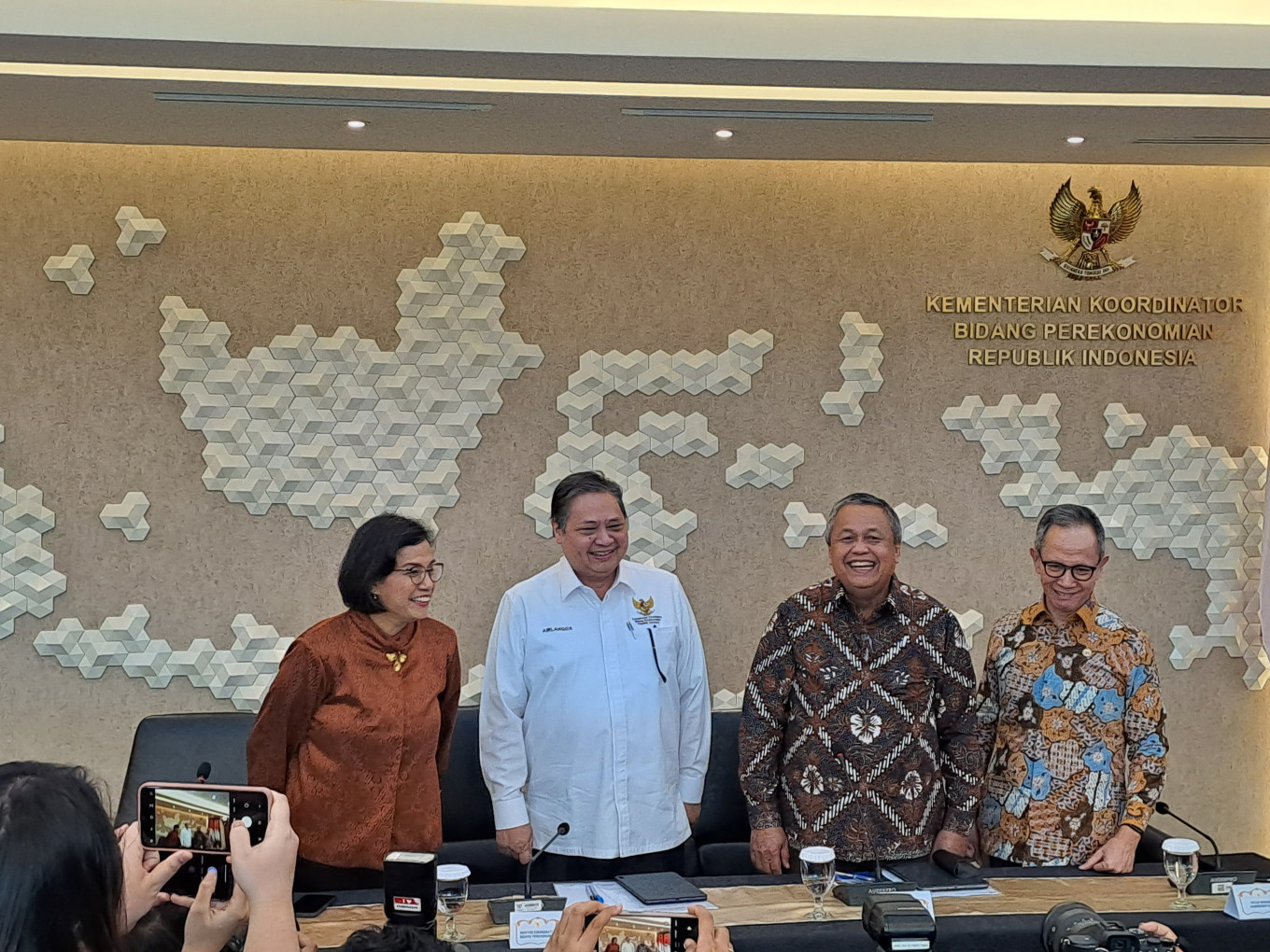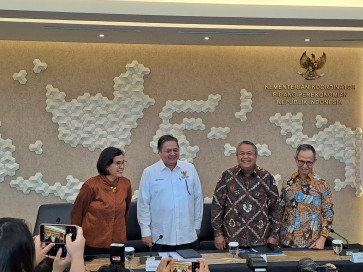Popular Reads
Top Results
Can't find what you're looking for?
View all search resultsPopular Reads
Top Results
Can't find what you're looking for?
View all search resultsEnhancing Indonesia's financial stability amid global challenges
While the KSSK plays a pivotal role in crisis management, its primary function is to coordinate efforts among relevant authorities, ensuring a harmonized approach to addressing financial challenges.
Change text size
Gift Premium Articles
to Anyone
 Finance Minister Sri Mulyani Indrawati (left), Coordinating Economic Minister Airlangga Hartarto (second left), Bank Indonesia Governor Perry Warjiyo (second right) and Financial Services Authority chairman Mahendra Siregar (right) pose for a photo for the press in Jakarta on July 28, 2023. (The Jakarta Post/Deni Ghifari)
Finance Minister Sri Mulyani Indrawati (left), Coordinating Economic Minister Airlangga Hartarto (second left), Bank Indonesia Governor Perry Warjiyo (second right) and Financial Services Authority chairman Mahendra Siregar (right) pose for a photo for the press in Jakarta on July 28, 2023. (The Jakarta Post/Deni Ghifari)
I
n a communication ahead of the New Delhi Group of 20 Summit, the Financial Stability Board's (FSB) chair informed G20 leaders about the potential implications of higher interest rates on borrowers with historically high levels of debt. This warning is particularly pertinent given the current context of rising inflation and a slowing growth outlook.
Additionally, the letter highlighted that the global financial landscape has seen the failure of a significant global bank and a few medium-sized ones this year. Quick action by authorities has, however, limited the contagion. The recent banking sector turmoil in the United States and European Union has exposed specific vulnerabilities, underscoring the need for strong supervision and the full implementation of the Basel III framework.
Adding complexity is the growing role of non-bank financial intermediation (NBFI), which while diversifying the financial landscape also increases systemic risk through leverage. As we navigate these multiple challenges, a coordinated, adaptive approach among interconnected institutions is more essential than ever.
Facing these complex global financial challenges, Indonesia recognizes the imperative for coordinated action. In response to these challenges and to strengthen the country’s domestic financial stability system, the recently revised Prevention and Handling of Financial System Crises (PPKSK) Law, as amended by the Financial Sector Development and Strengthening (P2SK) Law, paves the way for Indonesia’s financial future by promoting stronger collaboration among institutions in preventing and addressing financial system stability while preserving their independence.
As Indonesia implements the P2SK Law, critics have raised concerns that the Financial System Stability Committee (KSSK) could potentially compromise the independence of financial sector authorities in preventing and handling financial system crises. However, it is essential to clarify that the KSSK’s role is centered on fostering a harmonious balance between autonomous functioning and collaborative engagement. The KSSK serves as a coordinating body, comprising the finance minister as a coordinator, the governor of Bank Indonesia (BI), the chairman of the Financial Services Authority (OJK) and the chairman of the Deposit Insurance Corporation (LPS).
The amended PPKSK Law enhances the framework for preventing and addressing systemic banking issues, recognizing them as pivotal components of the financial system. This recognition arises from two critical considerations.
First, systemic banking issues can disrupt payment systems, affecting the effective functioning of the financial system and directly impacting the economy. Second, a substantial portion of public funds is managed by the banking sector, particularly systemic banks, making it imperative to safeguard these funds against potential bank failures.


















